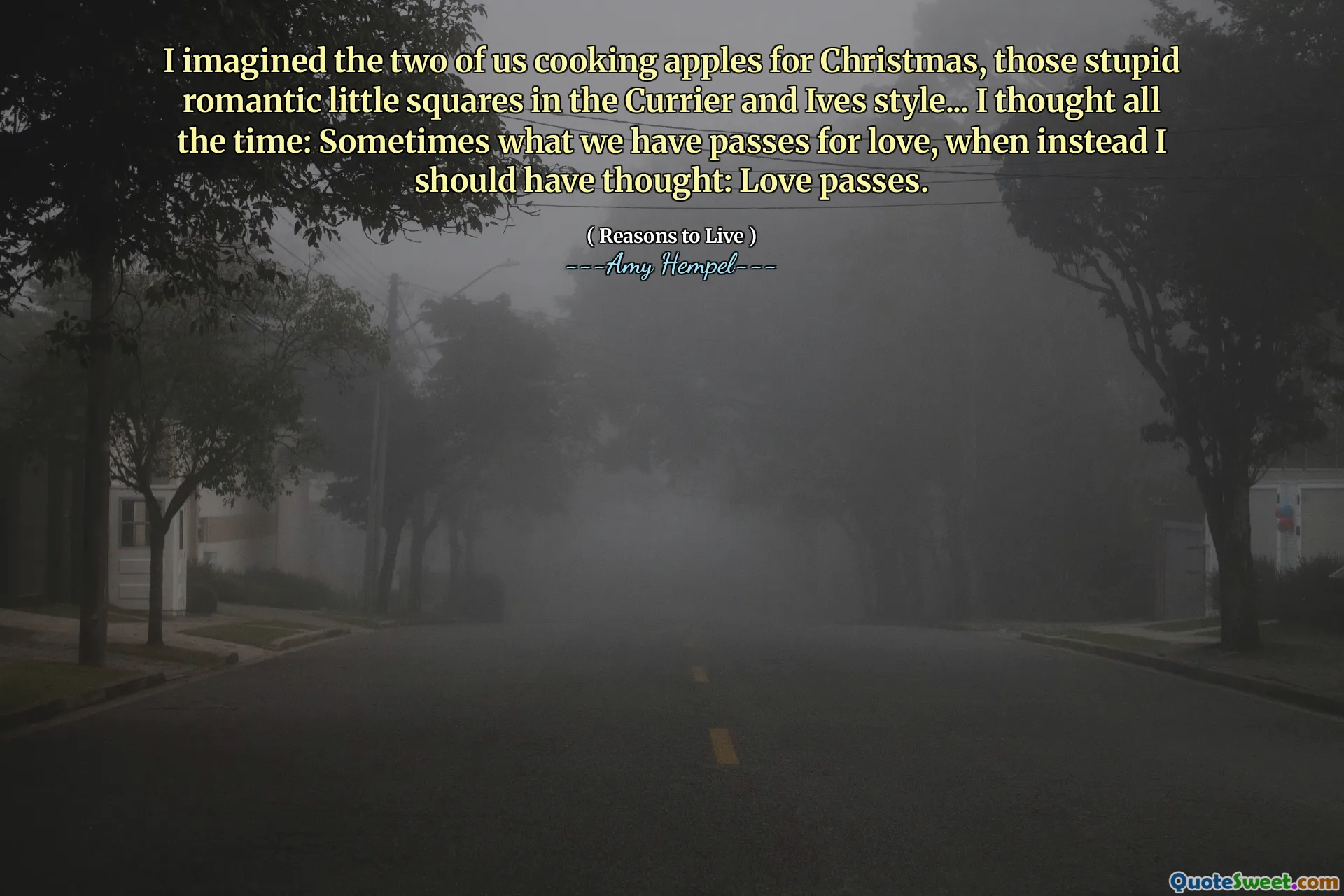
I imagined the two of us cooking apples for Christmas, those stupid romantic little squares in the Currier and Ives style... I thought all the time: Sometimes what we have passes for love, when instead I should have thought: Love passes.
This quote delves into the transient nature of love and the idealized notions we often harbor about it. The speaker reflects on a nostalgic and perhaps idealized vision of shared moments—a cozy, romantic image of cooking apples together during the holiday season, reminiscent of traditional holiday imagery like Currier and Ives prints. This idealization highlights how we sometimes romanticize certain aspects of love, associating them with perfect moments that are, in reality, fleeting. The realization that what we experience as love might be merely passing feelings or temporary emotions prompts a profound introspection about the permanence and essence of genuine connection. The phrase 'Love passes' subverts the common romantic notion that love is forever, suggesting instead that many romantic gestures or feelings are ephemeral. This can evoke a sense of bittersweet awareness—cherishing moments while recognizing their impermanence, which is a poignant truth for many. It invites us to consider the nature of our attachments, whether they endure or fade with time. Such reflections are essential in understanding the impermanence prevalent in human relationships and emotions, encouraging a more mindful appreciation of present moments without clinging to idealized permanence. This quote challenges us to reinterpret love, not as an everlasting state but as a temporary, perhaps beautiful, passing phenomenon. Recognizing this can bring a certain freedom—freeing us from unrealistic expectations and allowing us to value love for its fleeting beauty, understanding that its passing is an intrinsic part of the human experience.






